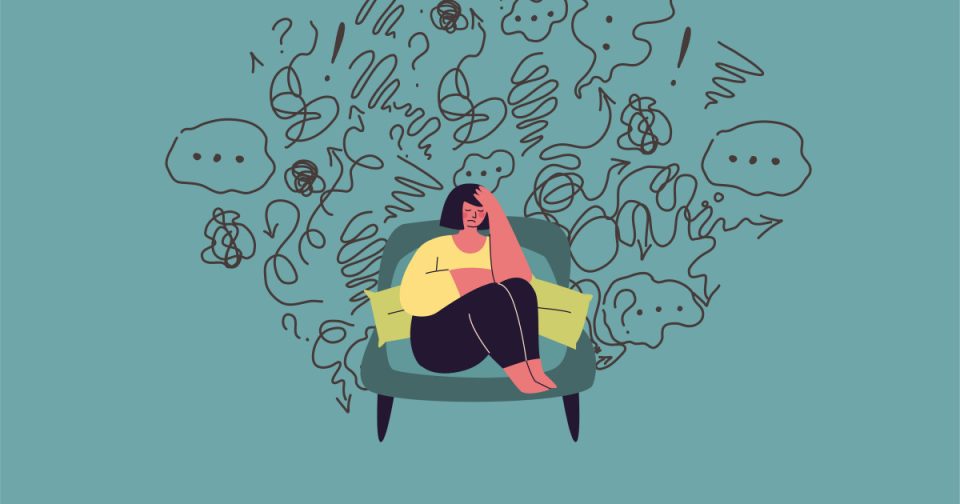The Context
In early 2012 the news spread like wildfire. Martina, the revered CEO of one of the most progressive digital companies in her country, had been hospitalized after a mental health breakdown. Later that year we met as part of a common mentoring program and we got a chance to talk.
“I was going through an ugly divorce,” she told me. “My partner stirred all emotions possible in our teenage daughters and all the guilt I felt while raising them up was now coming to haunt me. On top of that, we were after five years of economic crisis and our market is not the easiest one. I guess everything pilled up and I couldn’t recognize the signs until I crashed,” she said.
Martina had been hospitalized with severe depression. Now, back to work, she was a bit lost in relation to her next career step. “I don’t want anyone to suffer because of my condition. Neither my family, nor our company, clients, or shareholders. I just don’t know what’s the right next thing to do.”
The First Step
We decided to start working together for the next year.
The first thing we did was to speak openly about her health. Even though I am not a mental health practitioner, it helped to have clarity of her diagnosis, treatment, and doctor recommendations for her daily regime.
Unfortunately, this regime was not always compatible with the high-stress environment of a CEO in IT. So, Martina needed to reassess her boundaries and to create systems that would protect her, her fragile recovery, and the company at the same time.
We identified all the things Martina needed to do daily to nurture her mental health. Equally we identified all the places where she could get help so any unnecessary burden was removed.
In parallel, I spoke with a handful of mental health specialists on my own time to get a better understanding of the diagnosis and its consequences. All this created the ground for our next steps.
The Second Step
The breakdown showed Martina that she needed to prepare herself and her company for a different future. Martina sat down with her HR and revisited her succession plan. Equally she revisited her financial runway and drew the conclusion how long she could stay outside the labor market if she were to leave her company.
But the real question was: if she were to leave, where would she go? We both knew from experience that changing jobs as the CEO is one of the hardest things in the world.
So we identified her options. These included to continue in her current role, to demote in her current organization, to leave and take a long sabbatical hoping to return later on ready for a new CEO assignment, or to migrate naturally into the CEO of a non-governmental organization, ideally one dealing with mental health topics, which could be a lower-stress environment?
We took time to assess all options on the table. Martina led tens of conversations with various stakeholders to take the pulse of their trust in her. Equally she monitored her health and levels of mental energy carefully. Everything was telling her that leaving her current company would be the right thing to do once the right succession was in place; but the answer to the next question – where now? – was still not crystal clear.
The Breakthrough
“Whatever the future holds, does it help you being quiet or vocal about your mental health issues?” I asked her.
“Actually I wouldn’t mind being more vocal about it. I think few people recognize the signs of a crumbling depression approaching; I wasn’t able to recognize them. So perhaps it could be helpful indeed to talk more about this openly,” she said.
Together with her chief of communications Martina prepared an internal and external communications plan. They also brought in the HR to revisit their benefit policy in terms of mental health; this was happening 7 years before the Covid pandemic, when focusing on people’s health became a priority for everyone.
Martina went on to speak internally in company townhalls about her condition. She gave a few external interviews and she was invited to speak in a TED Talk. She didn’t know where these efforts would lead; all she knew was that for her this was the right thing to do.
The Resolution
18 months after her mental health breakdown Martina left her Fortune 500 company in good hands. She went on to create the first NGO focused on mental health for high achieving professionals. Thanks to her previous business contacts and sales acumen, fundraising was smoother than expected, so her new organization’s programs started to take off.
But their real breakthrough came in early 2020 when the whole world was paralyzed by Covid.
“It’s only now that I feel the world really gets me. Perhaps having this crisis when I did was a blessing in disguise. Now, when the whole world is struggling, I am much readier to help other people than I could have ever been had I continued in my CEO role,” she told me in a WhatsApp conversation in spring 2020. “Perhaps indeed everything happens for our own greater good.”
Martina’s story shows how little we know about mental health and how eager we are to take the mental health of our CEOs for granted. Surely, this denial gives us a heightened sense of safety. But it doesn’t mean that we shouldn’t do more to back our leaders up, mainly when they go through a combination of personal and market crisis. Mental health crises can and will take you by surprise. We need to do more to destigmatize them, mainly in relation to top leadership.



